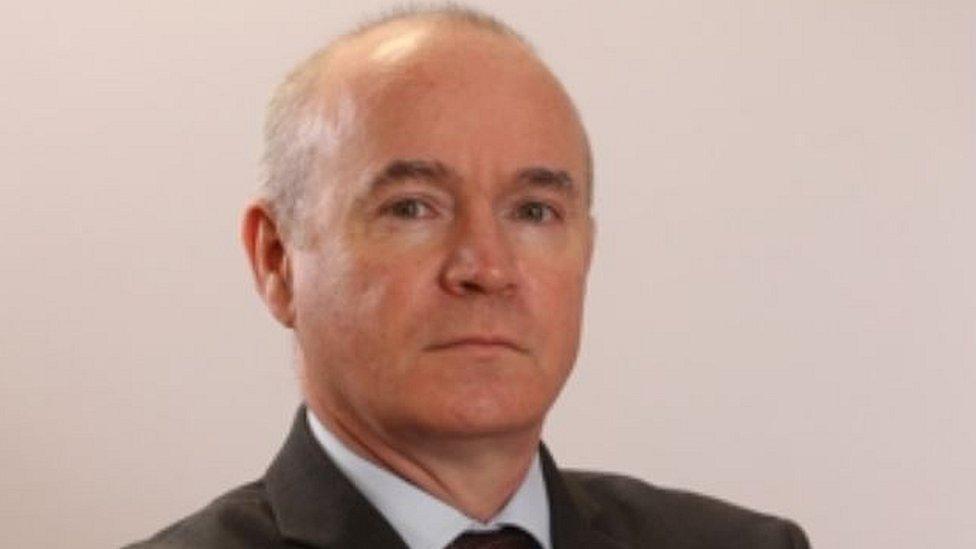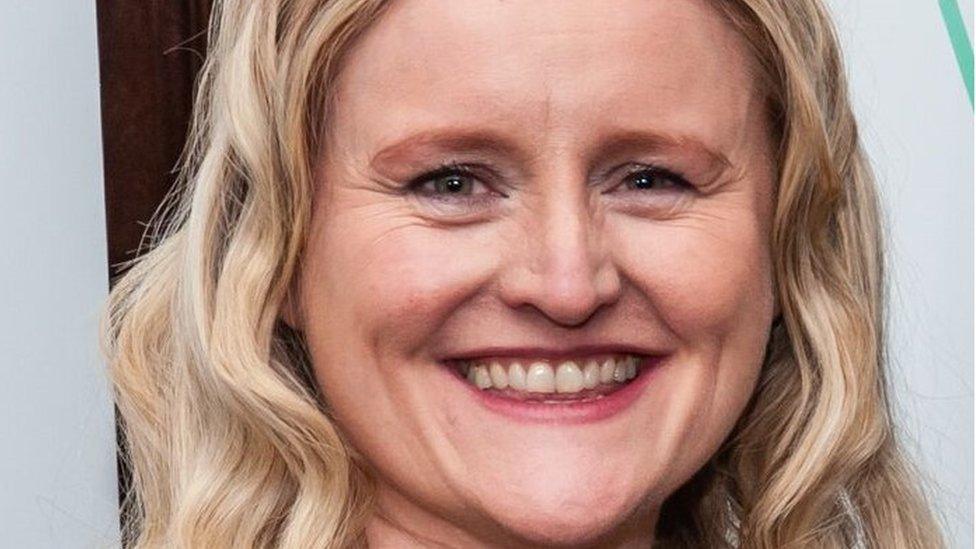Commissioner warns rape victims 'forced to choose between healthcare and justice'
- Published

Victims of serious sexual assault may be referred for counselling
Rape victims are being forced to choose between healthcare and justice, Northern Ireland's victims of crime commissioner has said.
Geraldine Hanna said victims were asked to consent to "excessive" personal data being handed over during trials, including counselling notes.
The victims of crime commissioner focusses on victims' needs.
Ms Hanna, the first person to hold the role, was appointed by then-Justice Minister Naomi Long in June.
In Northern Ireland, victims of serious sexual assault may be referred to counselling.
However, the police, prosecution, or defence may request access to their counselling records and the victim may be questioned about them in court.
Ms Hanna said she was concerned that this was putting some victims off accessing crucial support or causing them to censor their words in counselling, "for fear of how it may be used against them".
Speaking at the beginning of Sexual Violence Week, she said it was crucial victims of rape and sexual violence felt safe to report crimes and to work confidentially to process trauma.
"One of my key priorities is to strengthen the protection afforded to victims' personal data including the disclosure of counselling notes," she said.
Geraldine Hanna shares what she has been told by victims
"I am deeply concerned that the disclosure of third-party counselling notes in rape and sexual assault trials is forcing victims to choose between accessing healthcare and accessing justice."
A recent report by the Information Commissioner (ICO) outlined recommendations for police and prosecuting authorities to tighten the safeguards governing access to a victim's personal data.
Ms Hanna is engaging with the legal profession, victim support organisations, the public prosecution service, the PSNI, and counselling organisations to explore proposals to restrict or wholly exclude counselling notes from criminal trials.

During a court case, a victim may then be questioned about what they revealed in counselling
Joanne Barnes, chief executive of Nexus NI, which supports people affected by sexual trauma told BBC NI's Good Morning Ulster that the charity receives requests for clients' counselling notes on a daily basis.
"In the last year, Nexus has taken the decision that only in two circumstances do we issue case notes for clients, that's to the client directly... or under court order," she said.
"We've had to take this action to try and strengthen the confidentiality, respect and dignity that our clients deserve. No-one should have to make a choice between justice or their health."
Marie Brown, Foyle Women's Aid, told BBC Radio Foyle that she had seen "time and time again" people being let down by the process or watching others' experiences and thinking, "this is not worth it".
"If someone goes to counselling, it should be a confidential service in which they give their inner-most thoughts," she said.

Ciaran McQuillan said the view of the PPS is that no victim should be deterred from seeking support because there is a case ongoing
The Public Prosecution Service (PPS) said all victims of a sexual offence should feel confident that they can receive therapeutic care without surrendering their right to privacy.
"We in the PPS appreciate the deep and complex sensitivities around victims having their personal information accessed for the purpose of a criminal trial," Ciaran McQuillan, head of the PPS Serious Crime Unit, said.
"As prosecutors, we have a duty to apply the law and to ensure the overarching obligation of a fair trial. Part of ensuring that fair trial is complying with our duty of disclosure."
Mr McQuillan said the PPS would only ask police to seek material from third parties when it was a reasonable line of enquiry.
PSNI Superintendent Lindsay Fisher said police welcomed the opportunity to work collaboratively "to ensure that we are best supporting victims of sexual offences and delivering effectively".
UK Information Commissioner John Edwards said: "The important work by Commissioner Designate Geraldine Hanna for victims of crime in Northern Ireland, alongside broader work across the UK, is vital to making progress to prevent victims feeling as though they are being treated as suspects."
- Published14 March 2022
